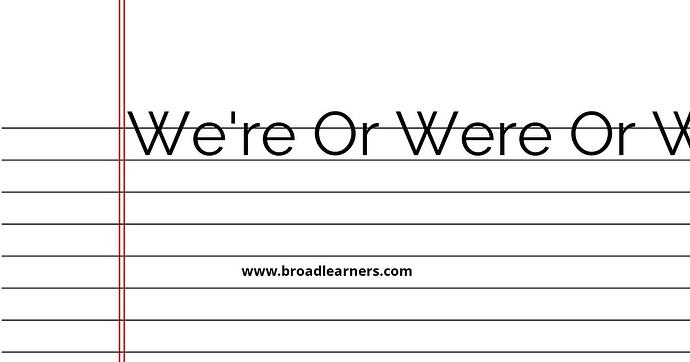'We're', 'were', and 'we're' are commonly confused words in English grammar. Understanding the difference between 'we're', 'were', and 'we're' is important to use them correctly in written and spoken English.
'We're' is a contraction of 'we are'. It is used to indicate the present tense of the verb 'to be' for the pronoun 'we'.
'Were' is the past tense of the verb 'to be'. It is used to indicate an action or state that occurred in the past.
'We're' is a contraction of 'we are'. It is also used to indicate the present tense of the verb 'to be' for the pronoun 'we'.
Let's take a closer look at the meanings and usage of 'we're', 'were', and 'we're'.
| 'We're' | 'Were' | 'We're' |
|---|---|---|
| The word 'we're' is a contraction of 'we are'. | The word 'were' is the past tense of the verb 'to be'. | The word 'we're' is a contraction of 'we are'. |
|
|
|
To remember the difference between 'we're', 'were', and 'we're', it can be helpful to remember that 'we're' and 'we're' are contractions of 'we are', while 'were' is the past tense of the verb 'to be'.
Here are some examples of correct usage:
- We're going to the beach tomorrow. (indicating a future plan)
- Last night, we were watching a movie. (indicating past action)
- We're always happy to help. (indicating a present characteristic)
Remembering the correct usage of 'we're', 'were', and 'we're' will improve your grammar and communication skills.
